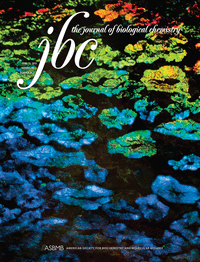 The authors of a 2014 study on the biochemical changes that can encourage the progression of cancer have withdrawn the paper from the Journal of Biological Chemistry.
The authors of a 2014 study on the biochemical changes that can encourage the progression of cancer have withdrawn the paper from the Journal of Biological Chemistry.
The post from the JBC – which we’ve noted are rarely helpful – doesn’t provide any details or reason for the withdrawal. As usual, this is all we got:
This manuscript has been withdrawn by the authors.
The paper, “The hydrophobic rich N- and C-terminal tails of beta-catenin facilitate nuclear import of beta-catenin,” studied how the accumulation of beta-catenin can accelerate cancer growth, and the amino acids that influence the process.
Three of the four authors on the study — Manisha Sharma, Cara Jamieson and Beric Henderson, at the University of Sydney, Australia — published another JBC paper on beta-catenin nuclear transport in 2012 that a commenter on PubPeer has raised questions about.
When asked about the withdrawal, editor-in-chief Martha Fedor said she couldn’t provide any information.
These articles were withdrawn by the authors, not retracted by the publisher. I’m not able to answer your questions because JBC editorial reviews are confidential. I suggest that you contact the authors for further information.
We’ve contacted corresponding author Sharma and we’ll update the story if we receive a response.
Like Retraction Watch? Consider supporting our growth. You can also follow us on Twitter, like us on Facebook, add us to your RSS reader, and sign up on our homepage for an email every time there’s a new post.
Martha Fedor is no longer Editor in Chief of JBC.
The interim EIC is Peter Guengerich. Perhaps he will be more forthcoming?
The JBC editorial policies only mention authors being asked to withdraw a paper.
Its not clear to me if there is any editorial process following a request from the authors to withdraw a paper.
http://www.jbc.org/site/misc/edpolicy.xhtml
The other paper questioned on PubPeer has also been withdrawn, but this time with more information:
“Specific Armadillo repeat sequences facilitate β-catenin nuclear transport in live cells via direct binding to nucleoporins Nup62, Nup153, and RanBP2/Nup358
VOLUME 287 (2012) PAGES 819–831
This article has been withdrawn by the authors. Further analysis revealed that the published data in Fig. 3C describing the binding of the R3–8 Arm fragment of β-catenin to Nup62 were in error. In addition, several lanes of the immunoblots in Fig. 3 were spliced together for presentation without clear indication of this fact.”